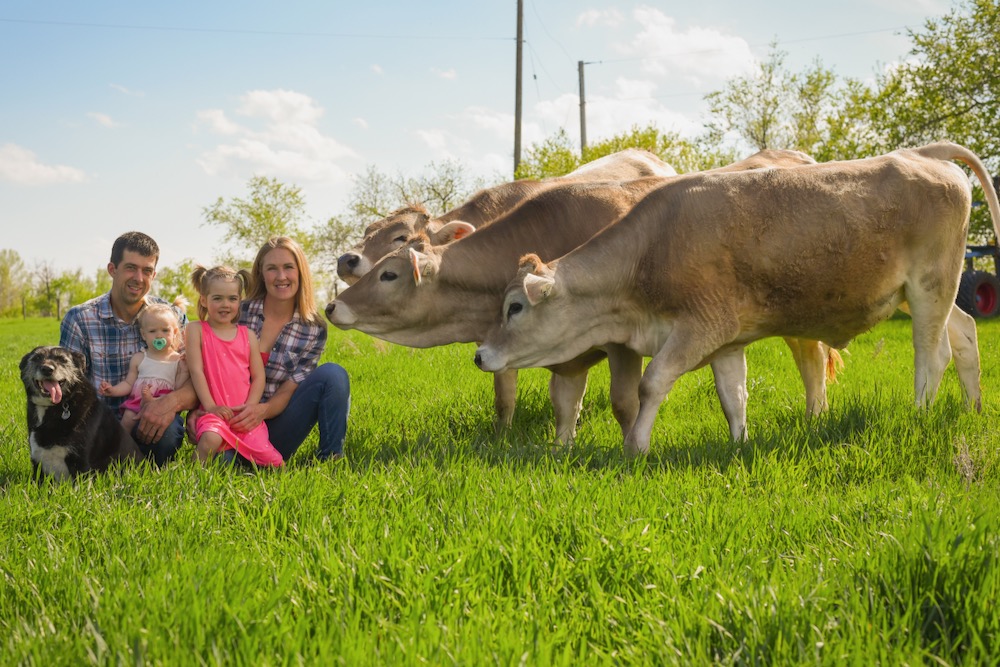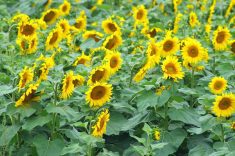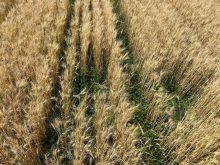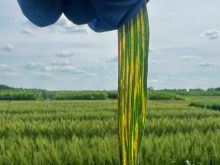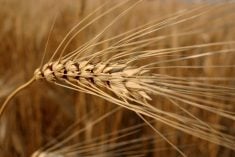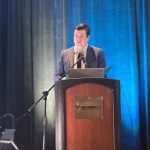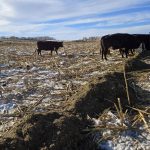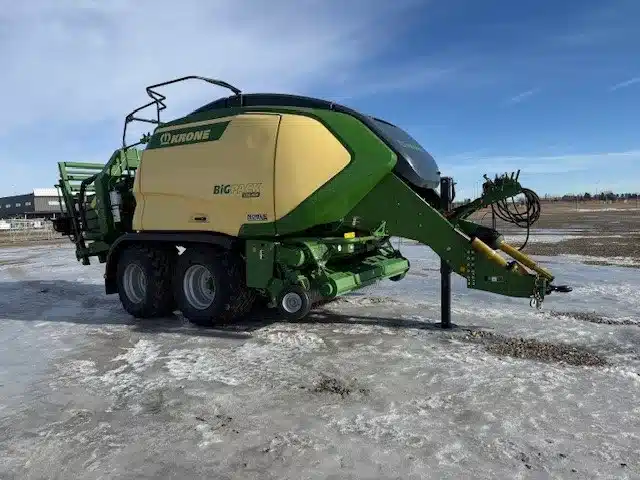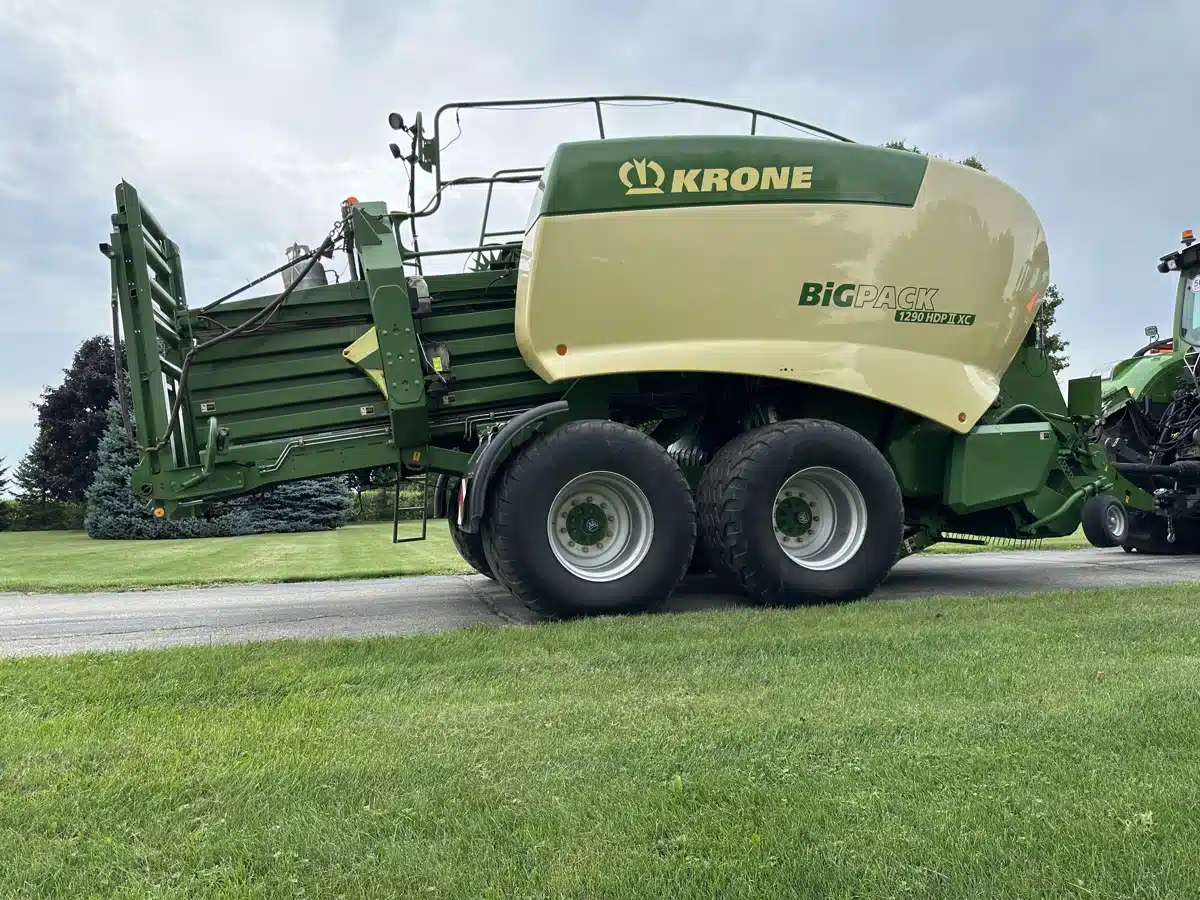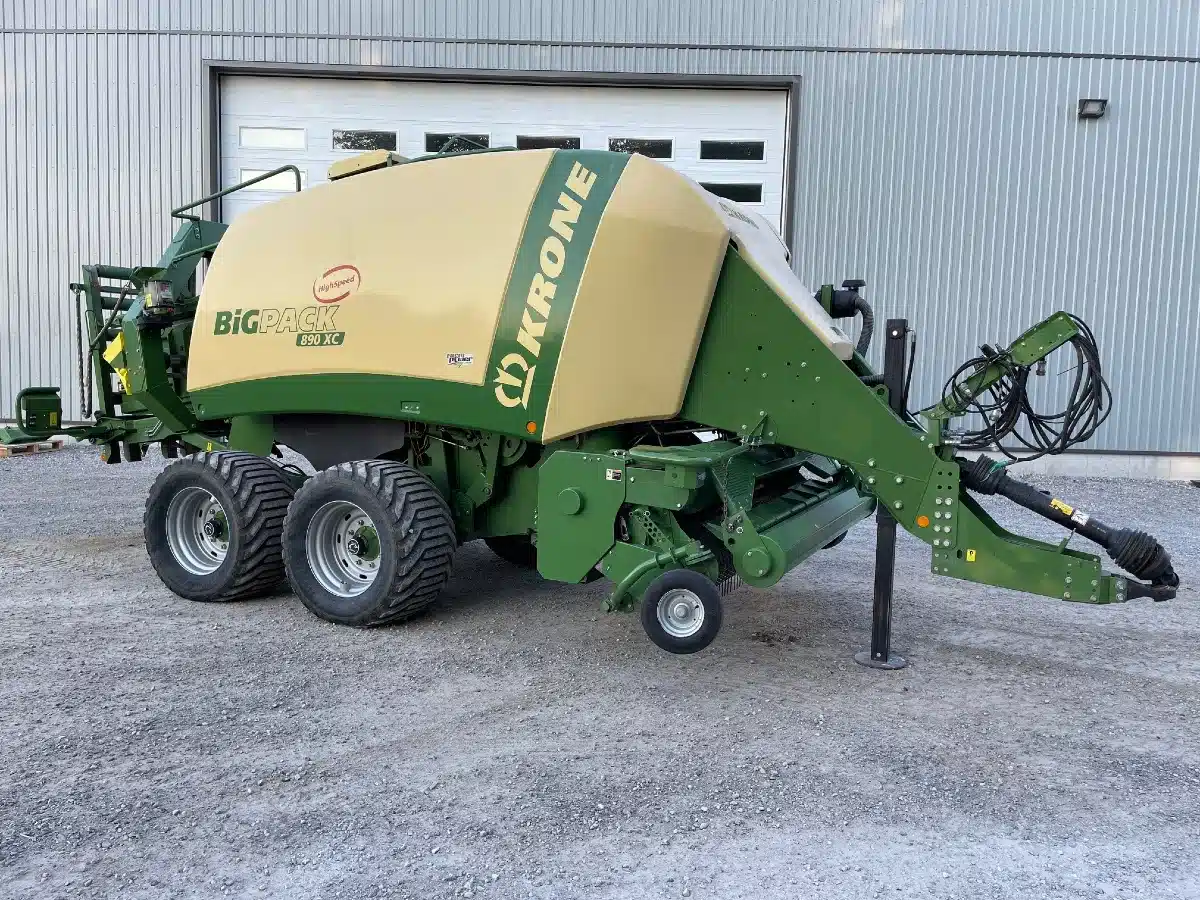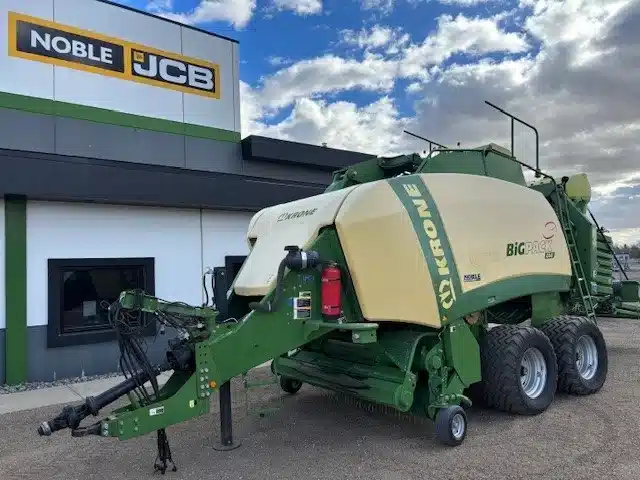With dairy cattle, cash crops and two young children, the days are still pretty busy for Manitoba farmers Marcus and Paige Dueck — but new technology introduced in recent years has helped them be more efficient and find balance in their lives.
For the Duecks, who are the third generation on Four Oak Farms near Kleefeld, about an hour south of Winnipeg, it’s important to “strive for excellence” in all aspects of farming, but they also want to have fun and enjoy life along the way.
Their skills in farm management and commitment to family and community earned them recognition earlier this year as Manitoba’s Outstanding Young Farmers for 2024.
Read Also
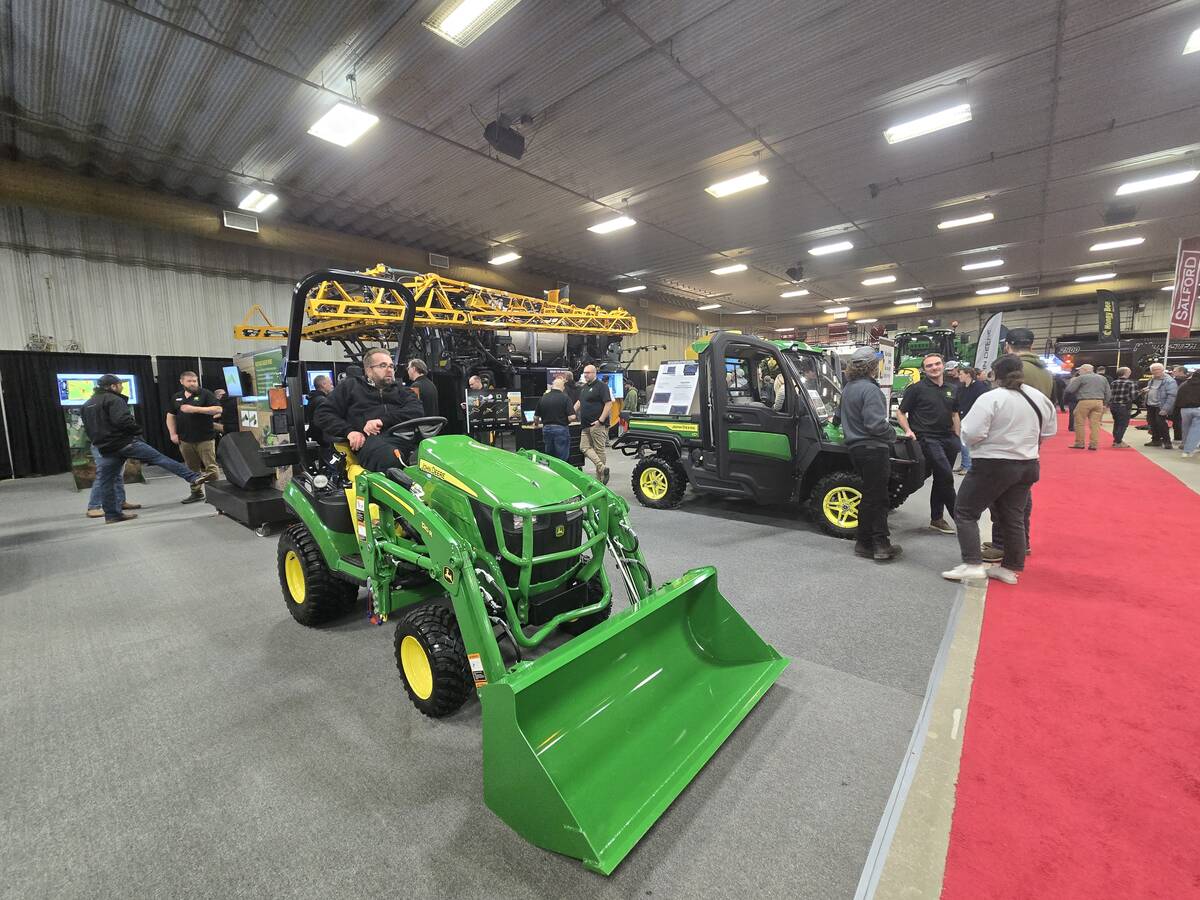
Manitoba John Deere dealers plan merger
Two retail dealership chains handling John Deere farm equipment in Manitoba say they plan to merge, bringing 13 locations under one organizational umbrella.
Marcus was born and raised on the family dairy farm, while Paige worked on farms growing up. They met at the University of Manitoba and both graduated with B.Sc. degrees in agriculture, majoring in animal systems. Marcus is a professional agrologist as well.
“Initially our goal was perhaps as simple as just being able to farm together,” Paige says. “Then as time goes by, you get a little older and children come along, we also want to do the best job we can, produce quality products, strive for excellence and enjoy life while we are doing it.”
Four Oak Farms today includes a 49-head registered Brown Swiss dairy herd, along with about 785 acres of cash crops including corn, soybeans and forages. Producing enough feed for their dairy cattle, they market their hay as well.
One piece of technology installed four years ago that reduced workload — and improved milking efficiency — involved installation of the only tie-stall robotic milking system in Western Canada. Developed by Quebec company Milkomax, the robot milks cows in a tie stall setup three times a day.
“The robotic milker has really made a huge difference,” Paige says. “It means that Marcus’ parents can retire from milking chores, and at the same time we don’t have to hire extra help. And the milking system has many features that help with managing milk quality and herd health.”
Since there are no dealers in the area, Marcus has become the prime technician for the robotic milker, “but considering how many components there are it operates relatively trouble-free,” he says.
“I may get between three and five alerts on my phone per week, but most of those issues can be fixed from my phone. I have to make relatively few trips to the barn.”
Once the technology was figured out, he says, it’s been fairly easy to train cows to be comfortable with the robot within a few days.
While Brown Swiss isn’t a common dairy breed in North America, Marcus jokingly blames his parents for making the transition from a Holstein herd to Brown Swiss a few years ago.
“My mother brought the first Brown Swiss cow onto the farm, and then there were two and eventually the Holstein cattle were gone and whole herd transitioned to Brown Swiss,” he says. “But they are an excellent dairy breed. They have a nice temperament and are excellent to work with. They produce less milk than a Holstein, but the butterfat content is high, so we get the quality and almost the same butterfat even with less milk volume.”
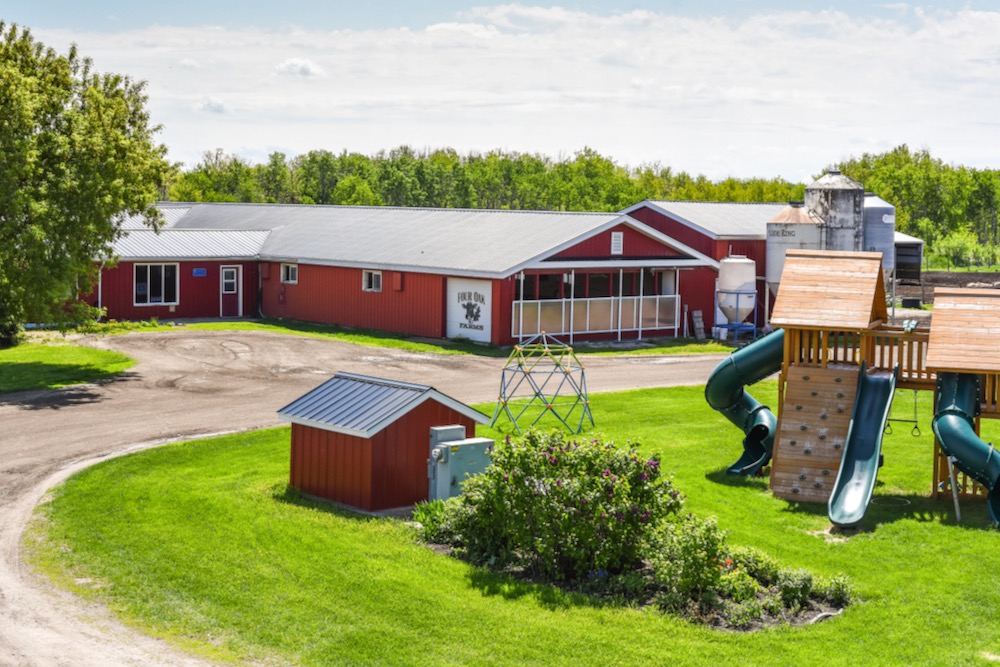
The dairy has won multiple milk quality, production and farm awards.
Another piece of technology that has reduced labour and improved efficiency is a medium-size square baler imported from Germany — a Krone Big Pack Multi Baler.
“Once we knew what we wanted, my parents found it during a trip to Germany and a month or so later it was on a ship headed to Canada,” Marcus says.
As the Duecks produce hay for their own cattle and market quality hay as well, they were producing a lot of small rectangular bales that required a lot of handling. The Multi Baler features three small rectangular bales wrapped inside a medium-size bale that weights about 600 lbs.
“The baler produces this medium-size bale and when you remove the strings, you have hay sections wrapped into three small rectangular bales inside for easy handling,” Paige says. “You can move the whole bale around with a front-end loader as needed, and then open it up and have three small bales for easy feeding. For us it meant the end of having to hand-bomb those small rectangular bales.”
Also to improve haying efficiency, the couple invested in a hay dryer that can dry up to 12 bales at a time. If hay needs to be put up a bit tough, the dryer will bring it down to a moisture level for safe storage.
They have tile-drained the farm as well, to improve cropping efficiency.
Marcus also operates an agronomy consulting service, Four Oak Ag Solutions. He works with several producers to develop nutrient (manure) management plans and provides other agronomic services.
“We have a lot on the go with the various farm enterprises,” Paige says. “But we use technology to help us be more efficient and reduce labour requirements and to help us (to) strive for excellence. Overall it is important to find balance, enjoy our family and enjoy life along the way.”

